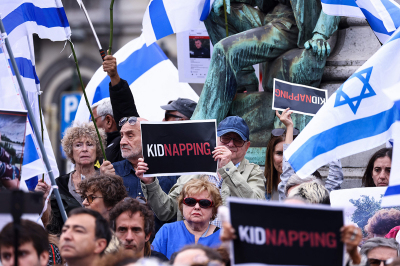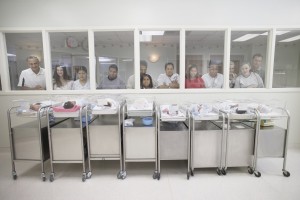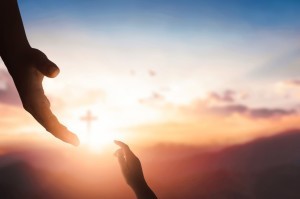Israel: No longer a sideline on which humanity can stand

In 1974, I arrived in Jerusalem as an exchange student from Berkeley. I was 20 years old and unconnected to the trauma the recently ended Yom Kippur war had left in its wake. I was there for an adventure, not to look into the shaken souls of those around me. So I had a great year, returned home, and never looked back.
I shouldn’t say never. Ten years ago my college-age stepson Sam was in a moral and emotional crisis. Four decades had passed since I had been in Israel. But I remembered how good that year had been for my sense of self and for understanding who I am as a Jew. I told him about my time in Israel and how I thought an experience in a faith-based community would help him find his way. Within a few weeks, my wife and I boarded a flight with Sam in tow. The plan was simple. We would drop him off at the program in which we had enrolled him, spend a few days touring the country, and then head back to our lives in New York.
We did return to New York. We returned to begin packing our bags, dismantling our household, arranging our business obligations, and explaining to our three other children, parents, and friends that we would be back to visit but that we were going home. We arrived in Israel in 2013 and were welcomed at the airport by a volunteer who greeted us as new immigrants. To him, it didn’t matter if we were arriving from Ethiopia, Russia, Uzbekistan, or India. “Welcome home,” he said.
The last 10 years have been the most fulfilling of our lives. I suppose deep inside we knew that our joyful sojourn in our indigenous homeland would be disrupted at some point; life for Jews has never been a straight line. But the brutality and viciousness of Hamas’s assault opened a wound that we, the second generation of Holocaust survivors, have been trying to reckon with our entire lives.
But now is not the time for lamentation. As sirens blare, we run to shelters, helping old folks navigate the stairs and making way for mothers holding babies so they can get first to a secure place. Under Hamas and Hezbollah rockets, everyone is more concerned that others are the first to make it to safety.
When we hear the all-clear message, my wife and I returned to packing medical kits for IDF soldiers. Our task is to put labels on blood sample bottles. It is tedious monotonous work. But in our minds, each label we affix has the name of a young soldier on it. So we go about our work with meticulous care to ensure that our tiny part of the triage of wounded soldiers is done perfectly.
A few days ago I went to a farm on the Gaza border to work in the orchards. I remembered a passage that was read to us by the headmaster of the Christian school I attended as a child down south. “Either make the tree good and its fruit good, or make the tree bad and its fruit bad, for the tree is known by its fruit.” When I arrived at the farm, I was told how weeks before the paths leading to the groves were lined for days with bodies of young people, Jews, Christians, and Moslems who had been murdered, raped, and mutilated. No time for lamentation, I told myself. Without our help, the fruit on the trees would soon fall dead on that same ground.
The following day I received this message from the mother of the farmer:
“We were still sitting shivah (mourning) for October 7 when we were turned away from our home on the orders of the army. The avocado went, the pineapple went, and the winter sabra fruit went too. We spent a week in Eilat, two weeks passed, almost three, and then the farmer in our son woke up. A farmer, it turns out, is a fickle creature, like the weather that abuses him all his days, and we discovered that our soul was bound by the actions of our hands. Today is already the third harvest and with volunteers like you, we are almost done. Thank you for the support without which our avocados would have found their way to the trash and you would not have entered the history book of the nation of Israel.”
Every Jew and Christian throughout the world must understand today that whether choosing to stand on the sidelines or to activate every resource at your disposal, you too are a part of the history book of the nation of Israel.
Ron Katz is the president of the Tel Aviv Institute. He studied at the Graduate Theological Union and received his PhD at the University of California, Berkeley. He can be reach at ronkatz@tlvi.org




























